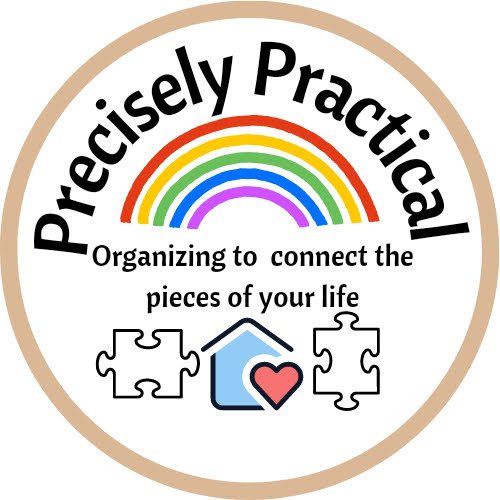Practical Organizing Solutions: The most important thing to give up on
Some may be surprised by this one.
As a wife and a mom, we learn many things as we go since there is no instruction manual that can give us what will work best for each family and their very unique combination of dynamics. One of the most important things that I learned to give up on is PERFECTION.
This includes not only trying to achieve perfection in your own tasks, but also expecting others in your life to do so which can cause much unnecessary grief and feelings of never being good enough.
Let me tell you this once and for all time:
You don’t need to be perfect and neither do others in your life!
While striving to get things done correctly is not a bad thing; not being satisfied with the progress that is made can result in anxiety, low self-esteem, or fear of failure.
Setting realistic goals is not only more productive, but will create a more positive environment for yourself and others.
Let’s go into the details of a few examples…
Let’s imagine that you are a child between the ages of 5 and 10 years old.
You are being told by your parent(s) to clean your room before you can play. You go to your room and are immediately overwhelmed because you really weren’t given a clear explanation of what exactly is expected.
What does “clean your room” mean?
It can have a different meaning for a child versus a parent. A child may think that shoving everything under the bed or in the closet will make it “clean”. The parent may have more detailed specifics in mind. Without clear expectations, the child will try to do what they think is needed. If it is not good enough for the parent, the child is sent back to try again. Clearly the parent wants something more perfect than the child is capable of. When the child cannot achieve that level of perfection, they feel like a failure and that their attempts will never be good enough.
This scenario can be played out in different situations and with different people and the end result will be the same. Clear and realistic goals must be communicated to others.
“Perfect” is not a realistic expectation as it is not attainable.
Here is another example of perfection or expectations causing issues that may be more relatable.
A family gathering is coming up and you are hosting at your home. This creates anxiety because your mother in law seems to look down on you as your home is never tidy enough for her. There may be toys on the floor, clothes over the back of the chair, or dishes on the kitchen counter. These are very normal things when life gets busy. You may not be able to control how someone else thinks but you can try to communicate that you are not striving for perfection. Some would call that “picking your battles”. I would call it prioritizing life and enjoying the moments when you can even if that means there are items that are not completely put away perfectly all of the time.
There is a better way to think about this. Systems can be used to create homes for all of your stuff and family members can be involved in tasks to help keep items put where they belong when not being used.
One person’s idea of perfect can be very different from another person. The goal is to find out what is achievable in each space according to how the person in that space can adapt. Communication and compromise are very important to create a calm and stress free environment where everyone knows where each items belongs. This will make it easier to find things as well as saving time when cleaning up because each item has a specified home to go back to.
Society has put so much pressure on us to be able to do it all and that is causing anxiety, stress, and depression by being overwhelmed.
Give yourself grace and ask for help when needed and remember to use the Practical Organizing Solutions and the most important thing to give up on

